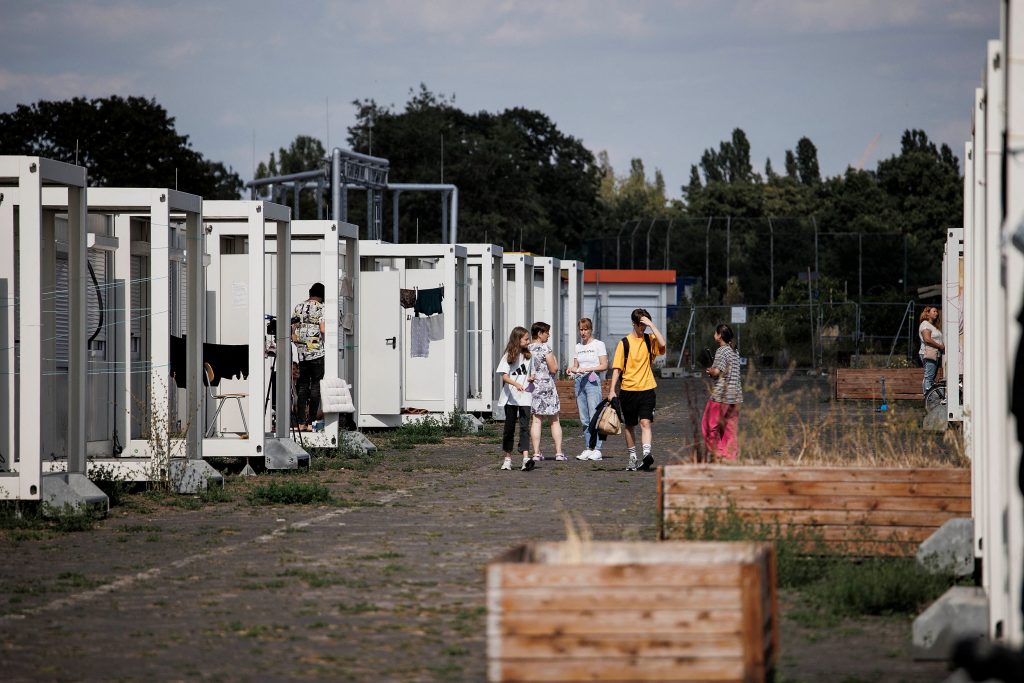
- ARAB NEWS
- 23 Apr 2024

TOKYO: Japan, which has accepted well over 1,700 Ukrainian people fleeing their home country since Russia’s invasion started in February, is devoting serious efforts to support their livelihoods.
In Tokyo, which hosts about 300 Ukrainian evacuees, the largest group, local governments and companies are leading such work, including through events to help them assimilate into local communities.
Still, amid concerns that Russia’s military aggression in Ukraine may be prolonged, there are challenges that need to be addressed more intensively, such as finding suitable opportunities for Ukrainian people to learn the Japanese language.
After procedures at the Immigration Services Agency of Japan, displaced Ukrainians stay on a temporary basis at hotels or the homes of acquaintances and then move to residences provided by local governments, companies or nongovernmental organizations.
The Tokyo metropolitan government provides public housing for free, and 196 people in 111 groups had taken up residence as of July 22. Each unit has two or three bedrooms, equipped with air conditioners and a television set. Lifestyle differences have been taken into account. For instance, “futon” Japanese-style bedding was provided at first, but was soon replaced with beds after requests from those who had difficulty sleeping.
In early June, a guided shopping tour was held at a supermarket in Mitaka, Tokyo, for 11 Ukrainian residents of the city. The tour organizers acted after a request for help from a refugee who said, “As there are too many items (at the store), I don’t know what to buy.”
On the tour, participants received an on-site briefing on a wide range of topics, including the difference between white and brown rice and the proper use of seasonings such as soy sauce and “mirin” sweet cooking sake.
“Everyone was interested in Japanese food and dishes, and the tour received favorable reviews as useful,” said an official of the Mitaka International Society for Hospitality, which organized the tour.
Displaced Ukrainian people have also been given opportunities to interact with local residents in Tokyo.
On July 24, such an exchange event was held at a public housing complex under the sponsorship of the Tokyo metropolitan government. “We can feel at ease if we have opportunities to meet face to face,” said a man who lives in the complex.
One of the problems besetting local governments is education for Japanese language competence.
In June, two students who had fled Ukraine joined a junior high school in Tokyo’s Taito Ward, where they take two special classes a week for a total of four hours. “We have experience of taking care of Chinese children. For Ukrainian children, however, Japanese language has proved even more difficult and the current class time is not enough,” the vice principal of the school said.
Lyubkina Oksana, a metropolitan public housing resident, is the mother of a third-grade student at a public elementary school. The boy has been given a chance to learn Japanese only once a week. “I want at least three times a week. My son is worried because he can’t make friends at school,” Oksana said with a gloomy look on her face.
Language barriers also stand in the way of employment. In July, Tokyo Soteria, a nonprofit organization that operates welfare facilities, provided housing to a man who had been evacuated from Kharkiv, northeastern Ukraine, to escape fierce fighting. Hoping to find an information technology job to make good use of his skills, the man now attends a private Japanese-language school introduced by the NPO.
“Kanji (Chinese characters used in Japan) are difficult. I will concentrate on studying Japanese until November while I’m eligible for financial assistance from the Japanese government,” the man said.
In a letter of requests submitted to the central and metropolitan governments in June, the association of the mayors of central Tokyo’s 23 special wards listed challenges in supporting Ukrainian people who fled to Japan. Specifically, the association said that it is difficult for municipalities to find people who can interpret and translate Japanese into Ukrainian languages and vice versa, and that there is a need for assistance to enable people to work and learn Japanese at the same time.
Flexible cooperation between the public and private sectors is essential to ensure that displaced Ukrainian people can live in Japan with peace of mind.
JIJI Press